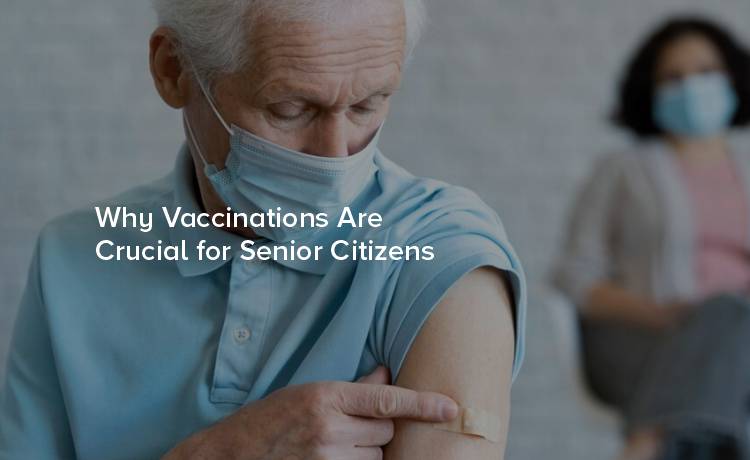
Vaccines play a significant role in protecting public health, but they become even more critical as we age. For senior citizens, vaccines aren't just about preventing illness—they are a safeguard against severe complications, long hospital stays, and reduced quality of life.
The aging process naturally impacts the immune system. This phenomenon, called immunosenescence, refers to the gradual weakening of immune defenses over time. For older individuals, this means:
Vaccines act as a preventive measure, preparing an aging immune system to fight specific diseases more effectively, significantly reducing the chances of infection.
Nearly 77% of older adults in India have at least two chronic health conditions, including diabetes, heart disease, or chronic obstructive pulmonary disease (COPD). These conditions can complicate recovery from illnesses and exacerbate the severity of an infection. For example, a senior with COPD who contracts pneumonia may face much worse symptoms than someone without it. Vaccinations lower the likelihood of contracting these preventable illnesses in the first place.
Severe illnesses in the elderly often mean long hospital stays, reliance on caregivers, or a permanent loss of independence. By getting vaccinated, older adults can avoid these debilitating outcomes, ensuring they continue to lead active, fulfilling lives for as long as possible.
Healthcare professionals recommend specific vaccines for older adults to help protect against the illnesses they are most vulnerable to. Here's a breakdown of the key vaccinations every senior should consider:
Tdap protects against tetanus, diphtheria, and pertussis (whooping cough).
Td is a booster for tetanus and diphtheria administered every 10 years.
Any senior who hasn’t received their initial Tdap dose should consider it.
Routine Td boosters are essential.
COVID-19 poses an elevated risk to older adults, leading to more severe symptoms and higher mortality rates.
Vaccination reduces illness severity and prevents hospitalization.
Seniors are encouraged to stay up to date with primary series vaccinations and booster doses tailored to current COVID-19 variants.
Vaccinations do more than just protect individuals—they contribute to a healthier community. This concept, known as herd immunity, works when a large portion of the population is vaccinated, reducing the spread of diseases even to those who cannot get vaccinated, such as individuals with certain medical conditions.
Seniors and caregivers may still have concerns about vaccines, often due to misinformation or fear of side effects. Let’s address some of these concerns:
Yes! While mild side effects (like soreness at the injection site) are common, serious side effects are extremely rare.
Yes, because aging inherently weakens the immune system, making even the healthiest individuals vulnerable to infectious diseases. Vaccines act as a proactive shield, regardless of prior health status.
Many vaccines are covered under Medicare Part B or Part D, as well as private insurance plans. For those without coverage, local health departments often offer reduced-cost or free clinics.
No, vaccines do not cause the diseases they are designed to prevent. The symptoms some people experience (like a slight fever or fatigue) are just signs that the immune system is building its defenses.
For senior citizens, health is often about prevention, and vaccines are an essential piece of that puzzle. By staying up to date on recommended vaccinations, seniors can significantly reduce their chances of severe illnesses, ensure quicker recoveries, and maintain the independence and quality of life they cherish.